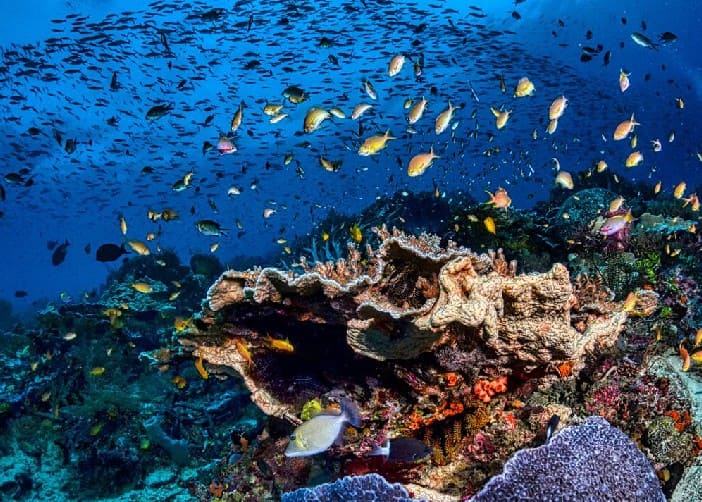
conservation in East Africa
Welcome To East
African Wild Life Society
The East African Wild Life Society (EAWLS) prides itself on being the voice of conservation in the East African region with a special focus on Kenya, Tanzania, and Uganda. We are registered in Kenya as a not-for-profit non-governmental organisation. Established in 1956 through a merger of the Kenyan and Tanzanian wildlife societies and wildlife enthusiasts from Uganda, we are one of the pioneer membership-based, public benefit conservation organisations in East Africa.
Become a Member
Supporting East African Wild Life Society signifies your dedication to conservation and the wise use of the environment in East Africa.
Strategic Issues for Advocacy
Climate Change
Climate change is a global concern and a principal threat to the survival of biodiversity and humanity's future.
"If nothing is done about climate change, we can forget about biodiversity" (Wilson EO. 2019, Biodiversity & Climate change)
Environmental Pollution
We are keen on addressing environmental pollution with a specific interest in plastic and effluent pollution in the region of East Africa.
Up to 80% of all litter in our oceans is made of plastic. By 2050 we will have more plastics in the oceans than fish. (UNEP).
Deforestation
Deforestation ranks top in the global environmental agenda. Its effects include habitat loss, biodiversity loss, greenhouse gas emissions, disruption of water cycles, increasing soil erosion, land fragmentation, disruption of livelihoods, human-wildlife conflicts, reduced land productivity and consequent degradation of forest ecosystems.
Environmental Governance
Deficient and ineffectual environmental governance, policies and legislation in East Africa is a major problem in conservation. Weak institutions, uncoordinated implementation of policies, insufficient funding, and limited capacity undermines effective and sustainable natural resource management.
Development & Environment
Disregarding of environmental standard requirements and procedures in urban infrastructural development in East Africa is a major concern. Construction of major transportation systems and industries seem to impact negatively on environment.
Our Work
Wildlife


Wildlife sector in East Africa supports the livelihoods of millions of rural households and significantly contributes to the region's economy through Tourism.
Forests


Forests contribute an average of 3% to the Gross Domestic Product (GDP) in the region, excluding ecosystems services and informally-traded non-timber products it renders.
Wetlands


These critical ecosystems cover an estimated 18 million Ha across East Africa. They are however severely threatened by encroachment and agriculture along riparian land.
Marine


The East African coast is rapidly deteriorating its marine environment through plastic pollution, threatening the survival of aquatic wildlife and marine ecosystems.
Advocacy


Our work involves Advocacy and policy development for better conservation and sustainable management of wildlife, forests, wetlands and marine ecosystems.
Swara Magazine


SWARA Magazine is an important tool we use for sharing information and creating awareness about conservation matters in the wider region of Eastern Africa.
What We Are Working on Right Now


Influencing Climate Policy & Blue Carbon Ecosystems Conservation in Kenya
In recent years, “Blue Carbon” (BC) ecosystems have gained significant attention for their potential to both mitigate climate change and provide valuable ecosystem services that support effective climate change adaptation.


Advocacy Against the Proposed Road Construction through the Aberdare Forest
We are challenging the proposed construction of the Ihithe-Ndunyu Njeru Road through the Aberdare National Park and Forest Reserve. This project, if implemented, will have severe and far-reaching negative ecological repercussions for our country.


Unlocking Biodiversity Data to Facilitate Designation of Lake Ol bolosat as the 7th Ramsar Site in Kenya
Despite Lake Ol Bolossat being a critical biodiversity hotspot in Kenya, and a designated Important Bird Area (IBA), it is under serious threat and has not been given the very much-needed attention in terms of management and protection largely due to inadequate and scanty biodiversity data.
News & Updates
UN Ocean Conference Ends with Commitments to Protect Marine Ecosystems
- June 16, 2025
- Wildlife
Nice, France – June 16 (Swara)—The Third UN Ocean Conference (UNOC3) closed on June 13 with a resounding call for global action to safeguard the world’s oceans. Leaders unveiled sweeping commitments …..
Aberdare Road Dispute in Court: Conservation vs. Development
- June 3, 2025
- Latest News
Nairobi, June 3 (Swara) – A three-judge bench of the Environment and Land Court in Nairobi concluded a pivotal three-day hearing on May 29, 2025, concerning the contested Ihithe–Ndunyu Njeru Road project ……
Chimpanzees Treat Wounds, Help Each Other Remove Snares, Study Finds
- May 14, 2025
- Latest News
Nairobi, May 14 (Swara) – In a remarkable display of compassion and ingenuity, wild chimpanzees in Uganda’s Budongo Forest have been observed self-treating and helping others…
Pioneers in Elephant Conservation Honoured with Royal Geographical Society Prize
- April 8, 2025
- Latest News
Nairobi, April 8 (Swara) – Two of Africa’s leading elephant conservationists, Dr Iain Douglas-Hamilton and Dr Jake Wall, have been awarded the 2025 Esmond B. Martin Royal Geographical…

